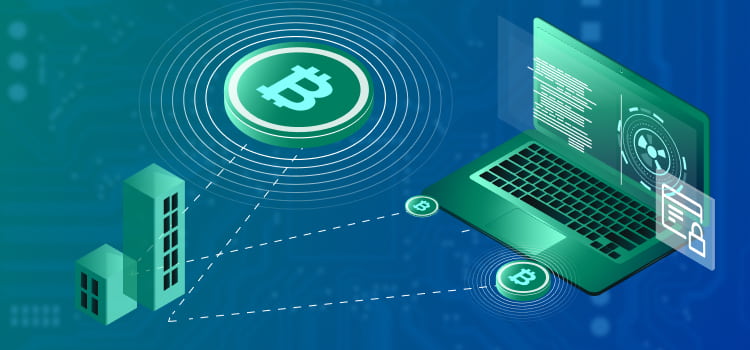As the world’s dependence on the Internet grows, so does the interest in investing in Bitcoin. Investors see it as a fundamentally new and promising type of assets. At the same time, the volatility of the currency rate frightens off many investors and indeed carries great risks. However, you can increase the likelihood of a favourable outcome for your capital by spending some time and effort to immerse yourself in the topic.
Some investors mistrust that one Bitcoin can be worth hundreds and thousands of dollars; they do not understand what gives it value. First of all, this is the rarity and difficulty of the extraction and usefulness as a digital means of payment and investment vehicle. The same thing happens with gold; the less it remains in the ground, the higher the price will be.
You need to figure out what kind of currency it is, how to use it, store it, find out the Bitcoin price and the advantages of this currency over fiat money to start trade Bitcoin.
What is Bitcoin, and how does it work?
Bitcoin is the first cryptocurrency, a decentralised means of payment that eliminates banks and other intermediaries need to complete financial transactions. It was launched in 2009 based on a technical document developed by Satoshi Nakamoto. Satoshi’s documentation expressed the opinion that the world needs an electronic payment system, in which a person will trust automated cryptographic proof instead of trusting their funds to third parties and companies.
Bitcoin technology works based on a network formed of individuals, volunteers who support it for financial reward. Software control is carried out using cryptography, the science of secure transmission of information that the sender and recipient can only read. Thus, unlike fiat currencies backed by either gold or trust in the authorities, Bitcoin is backed by open-source software.

Basic principles of Bitcoin work:
- At the heart of trade of Bitcoin is the blockchain public ledger, where data on absolutely all transactions in networks. All transactions between users are packed into blocks, and the blocks are then added to the chain. It is technically impossible to change the information added to the blockchain. Thus, the blockchain immediately provides both transparency and reliability for the trade of Bitcoin.
- The storage of cryptocurrency and the management of funds is carried out using a private and public key. Their collaboration allows the wallet owner to create and sign the transactions to be sent.
- Miners provide network support and new currency generation. Before being added to the blockchain, you must check each transaction for its honesty and legitimacy. The miners are also involved in verifying transactions. For each generated block of transactions, they receive a certain reward.
BTC is a Bitcoin trading symbol used in wallets, exchanges, etc. Besides, sometimes you can find the designation XBT.
Despite the initial idea of Bitcoin as a payment system, it is primarily relevant primarily as a trade and investment asset with very high volatility. This volatility carries risks but at the same time provides unrivalled opportunities to trade and make money on Bitcoin market speculation.
The advantages of Bitcoin over fiat money
The blockchain system makes Bitcoin trading safe and secure. Many investors have appreciated these advantages and have become actively investing in Bitcoin, which has raised its price. What other benefits does this cryptocurrency have over fiat money?
In general, the concept of Bitcoin and cryptocurrencies aims to achieve advantages over classic fiat currencies. Here are some signs by which the crypt shows itself as a more comfortable and reliable payment instrument:
- High divisibility. 1 BTC coin is divided into 100,000,000 satoshis, which allows you to send even very small transfers.
- Free storage and low cost. If you need to transfer money from country to country, then do it in Bitcoin more convenient. Bank international transfers can take several days and involve a large commission. On the other hand, Bitcoin allows you to transfer funds anywhere in the world much faster and cheaper than a bank. The bill has to be paid, and the Bitcoin wallets do not charge any storage fees.
- Lack of government regulation. Although some countries’ governments are trying to ban Bitcoin and do not accept it as a means of payment, they cannot technically prohibit private transactions. The network is not governed by a single centralised authority that can be influenced. Therefore, those countries act wiser which apply reasonable regulation to cryptocurrencies.
- Impossibility of counterfeiting. It is impossible to make fake Bitcoin. It is a currency that exists only in digital form and is based on a unique program code. It is impossible to bypass the blockchain, which records all transactions and all issued BTC.
- Inflation stability and resilience. The Bitcoin model is called deflationary due to its tight limit.
- Decentralisation. Anyone can install software, join the Bitcoin network and receive a reward. There is not a single point of critical importance on the network, the hacking of which will lead to serious malfunction or disconnection. The government will never be able to print Bitcoin to increase emissions.
- Complete anonymity. Using digital money, a person can be sure that no one will link this or that transaction with his personality. It is a direct wallet-to-wallet transfer. If you are using an exchange with mandatory account verification, then anonymity is reduced.
- BTC is instantly sent to anywhere in the world. Besides, the sender cannot request your transfer back.

Bitcoin trading is one of the safest options when the global economy is in crisis for investors. Thus, Bitcoin has every chance of becoming an alternative to world currencies over time. In the meantime, it is of interest as an asset that is compared to gold in terms of investment characteristics.
Bitcoin fees and prices
Fee adjustment allows you to increase or decrease fees, thereby adjusting the relationship between transaction speed and cost.
Miners receive part of their income precisely from the commissions of all transactions included in the block. That is why it is profitable for them to process the most expensive payments at the Bitcoin price in the first place. If you set the commission too low, then it will never be processed with a high degree of probability.
Some crypto wallets set the commission themselves and do not provide an opportunity to regulate it. In this case, they are guided by the blockchain’s current workload and ensure that the costs are optimal.
Bitcoin is a modern decentralised payment instrument and, at the same time, a promising investment asset. Therefore, even if you are not going to invest in it, you need to learn about the principles, features of work and the Bitcoin price, at least for general development. There is every reason to believe that cryptocurrencies will become a full-fledged alternative to fiat in a few years due to their unique properties in terms of anonymity, universality, accessibility, and, most importantly, decentralization.